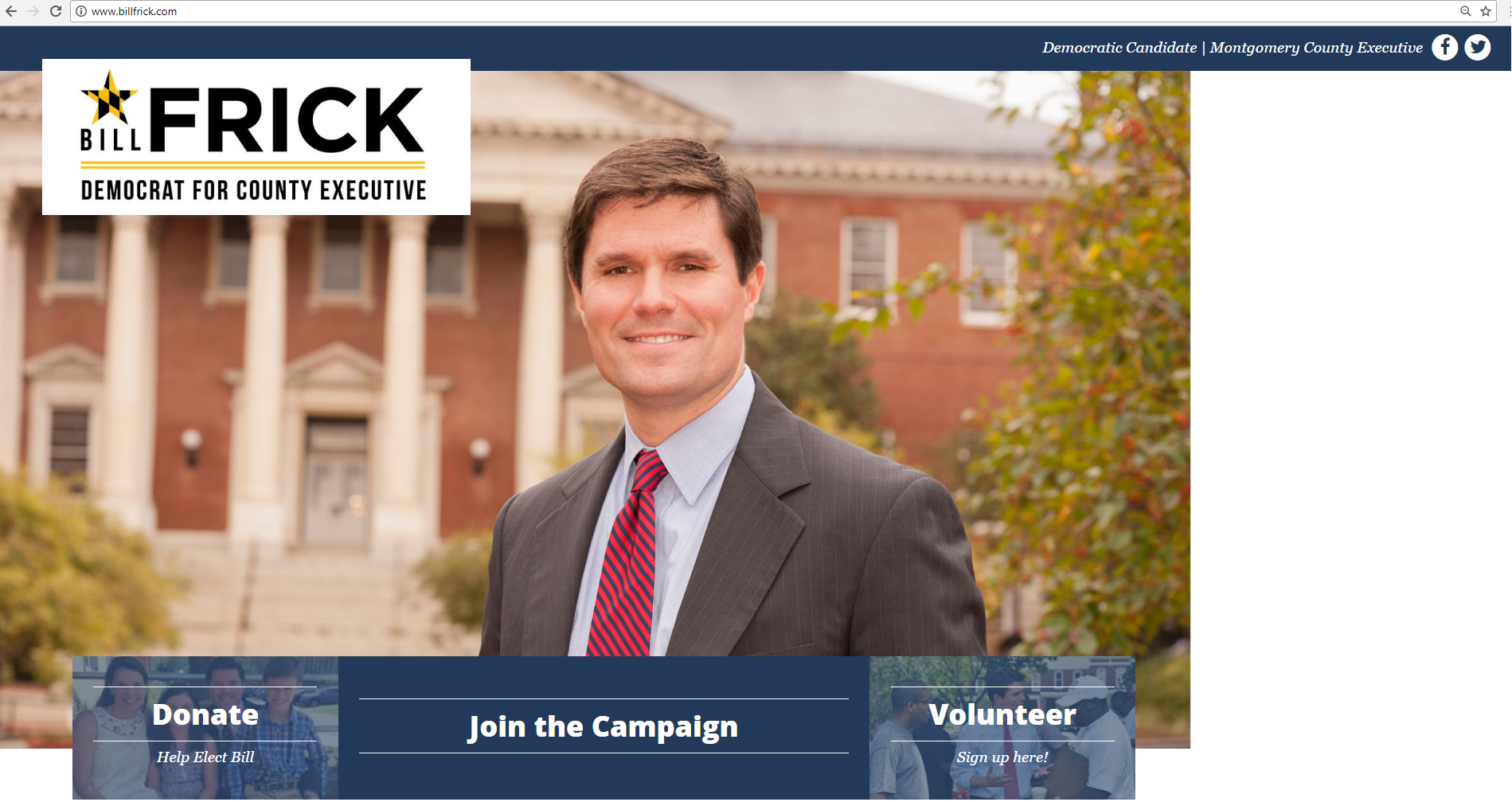By Adam Pagnucco.
Delegate Bill Frick’s candidacy for Montgomery County Executive raises a number of questions that will impact both him and his rivals. Here’s our shot at asking them and teasing out some answers.
Question 1: The Path Not Taken
Four years ago, the higher office Frick really wanted was Attorney General. His path at that time was blocked by his district’s Senator, Brian Frosh, but it could be much more viable in the near future. Frosh will be 76 years old at the end of his second term. If Frick were to remain in the House and raise money, expand his connections and build a statewide network, he would be a strong contender to succeed Frosh. Frick would also have a great rationale for an AG candidacy: his legislative history on consumer issues demonstrates that he would be an aggressive crusader against predatory banks, rapacious credit card companies and sleazy Internet scammers. That’s a politically powerful message. But a losing race for Executive would let other candidates jump ahead of him for an AG run. It’s a huge opportunity cost that should not be paid lightly.
Question 2: Geography
How much are Frick and Council Member Roger Berliner handicapped by the fact that they represent much of the same area? Berliner’s District 1, which includes Bethesda, Chevy Chase, Kensington, Potomac and Poolesville, contains 31% of all Super-Democrats (Dems who voted in all three of the 2006, 2010 and 2014 primaries). Frick’s Bethesda-based District 16, which is inside District 1, contains 19% of all Super-Dems. These areas are excellent bases from which to launch a countywide campaign. But Frick and Berliner could split these votes, hurting both of them. Also worth considering is that Council Member Marc Elrich will get votes in this region as well owing to his criticism of unpopular master plans passed by the County Council.
Question 3: Prior Races
Consider this. In the last four years, Frick has run for four different offices: Attorney General, Delegate, Congress and now Executive. No other MoCo politician can say that. Accordingly, there is some skepticism in the political community that he will be in the Executive race to the end. That is going to play itself out with large contributors, who are critical since Frick will be using traditional campaign financing and there are only nine months left until the primary. The last thing a big donor who cares about county government wants is to go all in for a candidate who drops out and runs for something else. This is huge considering that Frick reported a balance of $45,818 in his state account in January and he cannot transfer funds directly from his federal account. Frick needs to have a convincing argument to address this with donors or he will be unable to fund a competitive campaign.
Question 4: Counter-Attacks
Frick’s early strategy is to attack the County Council, a message that should get some traction among the majority of county Democrats who voted for term limits. Frick told the Washington Post, “Our demands exceed our capacity, on our roads and in our classrooms… Too often, local leaders have been complacent, content to raise taxes and resist vital reforms, and our small businesses and parents grow more and more frustrated.” In Bethesda Magazine, he criticized the “Rockville bubble” and blasted the council for protecting the liquor monopoly. (Berliner is the one Council Member who agrees with Frick on that issue.)
But Frick has a record too and his new rivals are sure to bring it up. While Frick attacks the county’s giant property tax hike, he voted for numerous state tax increases during the O’Malley years, including a 2012 state income tax hike of which MoCo residents paid 41% of the increase. The Council Members will grill Frick on the state’s anemic performance in financing school construction in MoCo, a major issue for voters. And Council Members Marc Elrich and George Leventhal, both of whom have co-sponsored a bill establishing a $15 minimum wage in MoCo, will ask Frick why he was not a co-sponsor of the state’s $15 minimum wage bill in the last General Assembly session. In politics, no one gets to throw a sharp elbow without taking one in return.
Question 5: Other Candidates
We suspect that Frick may not be the last non-Council Member to enter the race. Senator Cheryl Kagan (D-17) is sure to look at a field that includes four men and think, “In a primary electorate that is roughly 60% female, maybe there’s room for a woman in this race!” Former Council Member Valerie Ervin, who polled an Executive race in 2013, might think, “Yeah, I got that, plus I have a base that no one else has!” Businessman David Blair, who can self-finance, is polling and would be a true outsider candidate – even more than Frick. Elrich, who has an immovable base of true believers who could be a fifth of the electorate or more, would no doubt welcome a large field.
And there could be even more surprises in an election that is shaping up to be one of the wildest in MoCo history.





